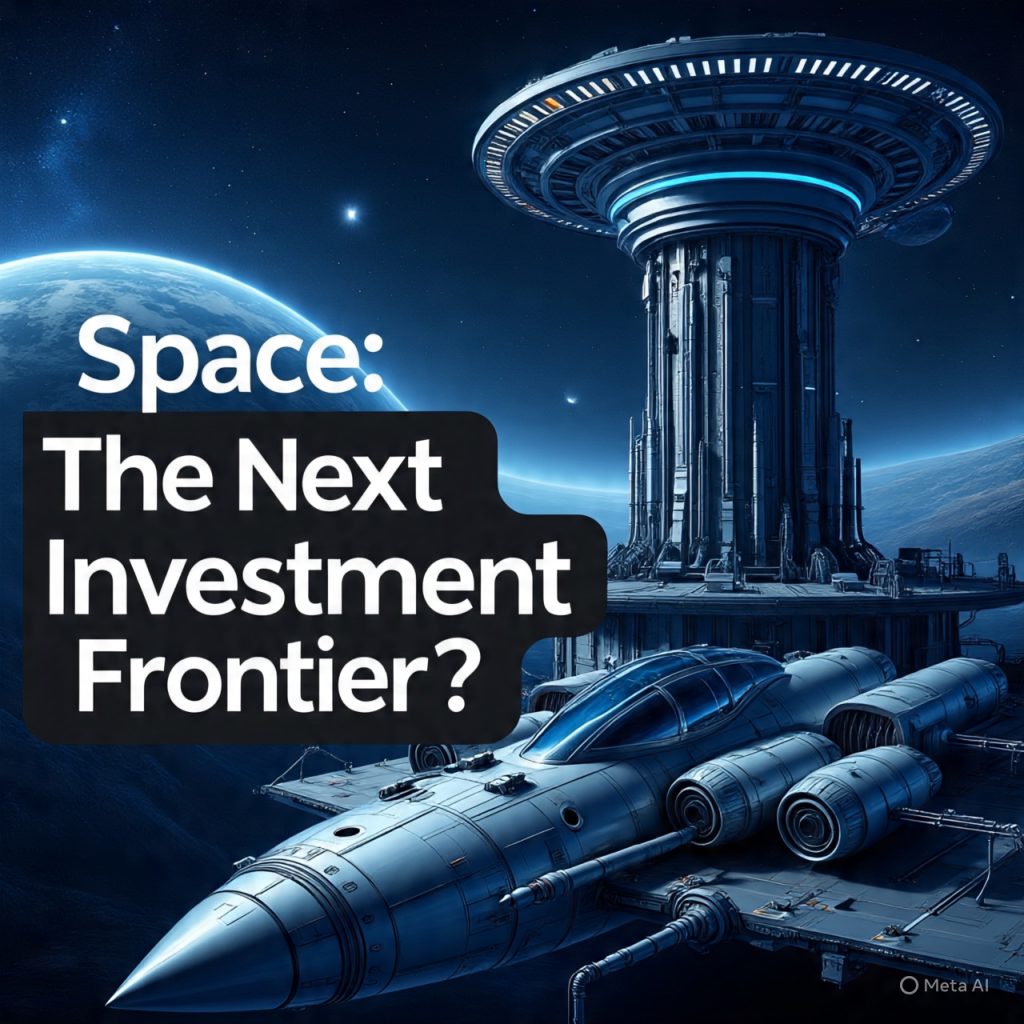Once a domain solely of governments and astronauts, space is now the hottest new frontier for investors. Billionaires, start-ups, scientists, and sovereign wealth funds are all racing toward the stars—not just for exploration, but for real-world economic gain.
With private and public funding reaching all-time highs, and applications of space-enabled technologies growing exponentially, the modern space race is less about planting flags and more about solving problems here on Earth.
What’s Fueling the Space Investment Boom?
1. Commercial Viability
From satellite broadband to low-Earth orbit manufacturing, space is no longer a far-fetched venture. It’s a multi-billion-dollar industry with real economic value.
2. Diverse Applications
Today, space technologies are used in climate monitoring, disaster management, food security, logistics, and even national defense. These non-traditional applications are drawing a new class of investor.
3. Political and Private Partnerships
Governments are partnering with space start-ups and billionaires to advance innovation. This hybrid funding model is accelerating R&D and launch cycles.
“It’s not just about rockets anymore—it’s about reshaping how we live, work, and protect the planet.”
Beyond Satellites: Real-World Impact of Space-Enabled Technologies
�� Climate Forecasting and Disaster Response
Satellites are now instrumental in tracking hurricanes, wildfires, droughts, and carbon emissions. This data informs early warning systems and helps countries plan emergency responses.
�� Supply Chain and Logistics Optimization
Real-time satellite data is improving cargo tracking, maritime routing, and agricultural logistics, making global trade faster and more efficient.
��️ Defence and National Security
Governments are investing in satellite surveillance, anti-satellite defense systems, and encrypted space communication—a growing subsector within aerospace investment.
�� Food and Water Security
Space-based sensors help monitor soil conditions, rainfall patterns, and irrigation efficiency, boosting agricultural output and sustainability.
Inside IAC Milan: The Space Investment Pulse
At the International Astronautical Congress (IAC) in Milan, global leaders in aerospace and tech gathered to showcase breakthroughs and discuss the future of space funding. BBC’s Ru Abbass interviewed experts driving the next chapter of space commercialization.
Key themes from IAC Milan 2025:
- Modular space habitats, like Haven 2, a proposed successor to the ISS
- Reusable launch vehicles lowering costs
- Deep space mining and space-based solar power
- Increasing start-up participation with VC and angel investment support
The image shared from Vast—a private space firm—illustrates how far commercial ambition is reaching: private space stations are no longer science fiction.
The Billionaire Effect: Who’s Leading the Private Space Race?
�� Elon Musk (SpaceX)
Pioneering low-cost launches, satellite constellations (Starlink), and Mars ambitions.
�� Jeff Bezos (Blue Origin)
Focusing on space tourism, lunar missions, and long-term space infrastructure.
��️ Richard Branson (Virgin Galactic)
Pushing the boundaries of suborbital space travel for civilians.
These billionaires are not only investing in space—they’re reshaping the investment landscape, creating room for start-ups, engineers, and private investors to participate.
Is Space Investment Worth It? A Look at the Risks and Rewards
Opportunities
- High long-term ROI
- Multi-industry applications (tech, defense, climate, health)
- First-mover advantage in underdeveloped sectors
Challenges
- High capital risk
- Regulatory uncertainty
- Long development timelines
- Geopolitical tensions in space governance
The potential for transformative impact is massive—but it requires patience, strategic partnerships, and technological foresight.
FAQs: Investing in Space in 2025
Why is space considered the next investment frontier?
Because of its growing commercial viability, real-world use cases, and increasing public-private collaboration in fields like climate monitoring, defense, and communication.
What is the IAC Milan?
The International Astronautical Congress, held in Milan, is a global forum for showcasing space innovation, investment trends, and scientific breakthroughs.
Are only billionaires investing in space?
No. While billionaires lead the headlines, venture capital firms, institutional investors, and even governments are actively funding space technologies.
How does space tech help on Earth?
By powering applications in weather prediction, natural disaster alerts, precision agriculture, logistics, and surveillance.
What is Haven 2?
Haven 2 is a proposed private space station that may serve as a successor to the ISS, representing the future of space habitation and commercial orbital research.
Conclusion
The global space economy is not just about reaching the stars—it’s about creating solutions for Earth. With record-breaking investments, breakthroughs in space-enabled technologies, and a growing ecosystem of entrepreneurs, scientists, and strategists, space has officially become the next investment frontier.
From climate resilience to satellite internet and beyond, the sector’s potential is limitless. And the future? It may be built among the stars—but its value is grounded right here on Earth.

Theo Louse
I am Theo Louse. My skills are dedicated to the field of technology information and try to make daily lives more enjoyable. With more than 12 years of experience with BM, we are particularly famous for 100% self-developed ideas. Over these years, we have worked to make everyday life more convenient for the fast-paced world we live in.

